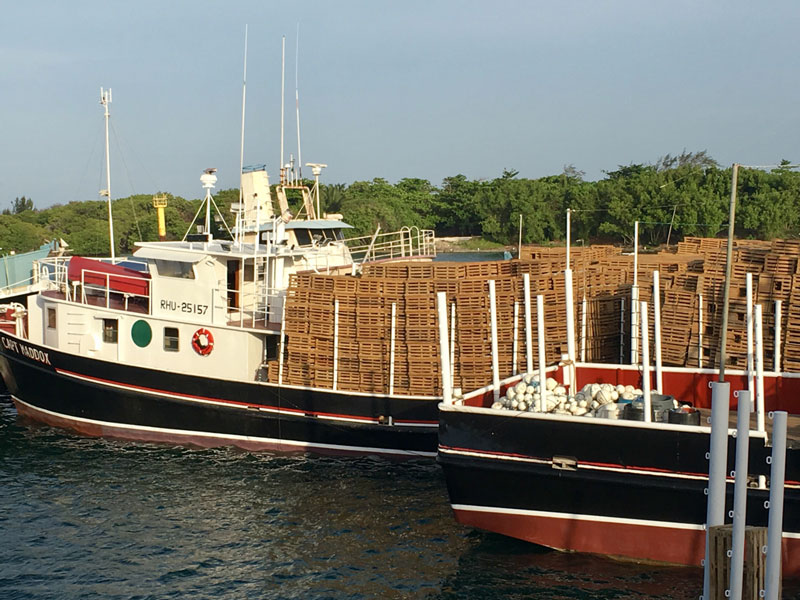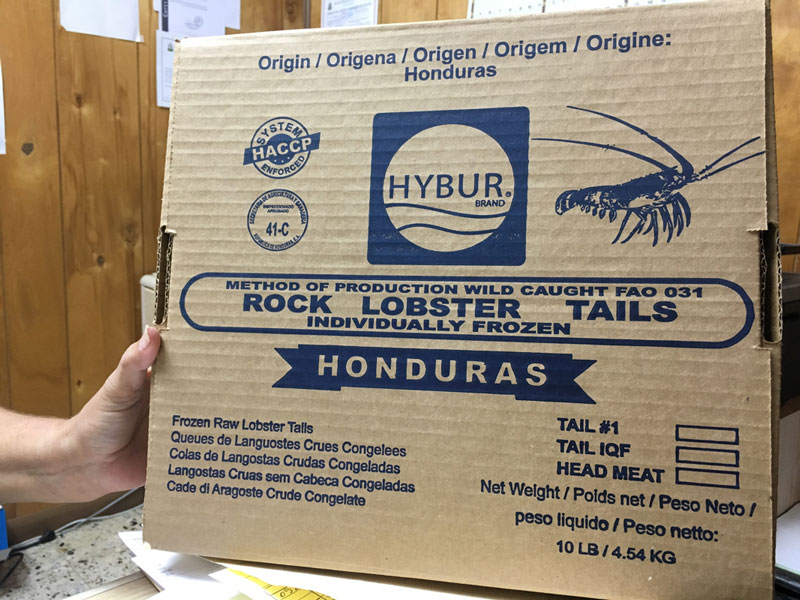

First-hand Fishery Experience for Western Australian PhD Researcher
September 27, 2017
As one of the successful applicants for the Western Australia Crawford Fund International Agriculture Students Awards, Kendra Travaille, PhD Researcher at the University of Western Australia (UWA), recently returned from her trip to Honduras where she explored the Fishery Improvement Project (FIP) process for the Honduran Caribbean spiny lobster fishery.
As part of her research at the UWA, Kendra was interested in how these projects are used to impact change across different ecological, social, economic and cultural settings, as well as the FIP process in different fisheries around the world with the aim of identifying key factors that influence project outcomes. With FIPs being utilised as a market-based tool and becoming increasingly popular with NGOs and the seafood industry to foster change in fishing outcomes, Kendra could explore the issues directly.

During her three-week trip, she travelled with a local translator to the main fishery islands of Roatán, Guanaja and the Cayos Cochinos and the city of La Ceiba on the mainland to learn more about the Honduran lobster fishery and FIP process. Speaking about the significance of this fishery, Kendra said, “the fishery is an important source of income for hundreds of fishers and processors and produces around 2500 tonnes each year. Almost all the catch is exported to the United States, where seafood sustainability is in high demand and to meet market requirements for sustainability, the trap sector entered a FIP in 2011; however, the FIP has struggled to make improvements”.
Reflecting on her experience Kendra said, “being able to visit these areas and speak with local people in the fishery has greatly increased my understanding of how the fishery operates and some of the issues impacting FIP progress. I also gained first-hand experience with some of the challenges faced when trying to implement a FIP or similar program in a developing region, including working with minimal resources and balancing complex stakeholder interests. These insights will be incorporated into my research and published in the peer-review literature. Research outcomes will also be presented to the fishery stakeholders in Honduras who so kindly shared their knowledge and experience with me during my time there”.

Kendra’s trip to Honduras is part of our efforts to support and encourage young Australians in study, careers and volunteering in international agricultural research, our International Agricultural Student Awards from Crawford Fund State Committees will be supporting 14 Australian tertiary students to gain international agricultural research experience and expertise.
Throughout 2017 and the early part of 2018, the 14 successful International Agricultural Student Award recipients will travel to their host countries to research and explore their chosen topic areas. You can keep up with their journey here on the Crawford Fund website and read more about their findings, learnings and any challenges they encounter.
You can also find out more information about fishery improvement projects at www.FisheryProgress.org and more information about Kendra’s research can be found at www.kendrathomastravaille.com.




